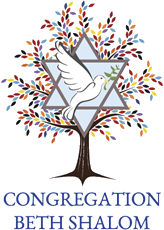The story of Cain and Abel, the first two children of Adam and Eve, is loaded with strange images and statements, not the least of which is in Genesis 4:7 – ‘If you improve, it will be forgiven, and if you do not improve, sin is lying at the door’. How very strange! And then there is the mark of Cain – what is that all about?
This story, which appears in some ways to have come from a different, perhaps earlier, mythology, is so full of questions that we can easily miss what is perhaps its most important lesson – an especially important lesson as the High Holy Days approach.
The traditional understanding of Cain’s banishment is that he was being punished for the murder of his brother, Abel. Certainly it was an action worthy of punishment. But I would suggest that this is not truly why Cain was banished. Rather, he committed a much greater wrong – it was his reply to God’s question that sealed his fate.
Right after the murder God asks Cain, ‘Where is your brother Abel?’ Cain’s response is, ‘How should I know? Am I my brother’s keeper?’
Yes! You are, indeed, your brother’s keeper. And we must remember that, yes, each of us is responsible for our brothers and for one another.
In the midst of our daily turmoil and strife, it is all we can do to keep our heads above water and look out as best we can for ourselves and our families. But we are still our brother’s keeper.
As we prepare for the New Year – as we focus in on how we can correct our failings and increase our strengths, let us make sure we do not leave others behind. In a world torn by war and hunger and despair, we must remember to do what we can to begin the process of change – even if it is a small change.
The Talmud tells us that while we are not required to complete the task, neither are we free from trying. Remember on these coming High Holy Days to try to be that agent of change.
B’Shalom
Rabbi Stanley Halpern
